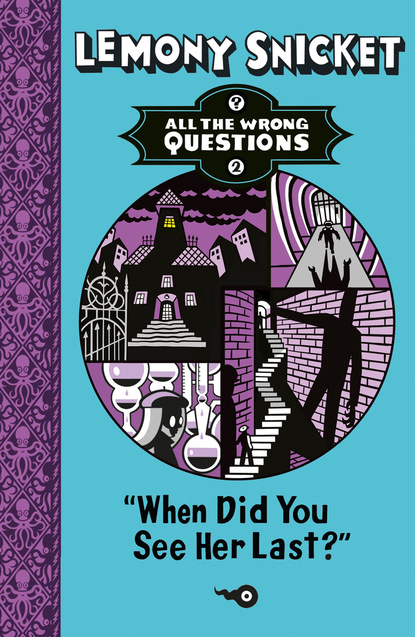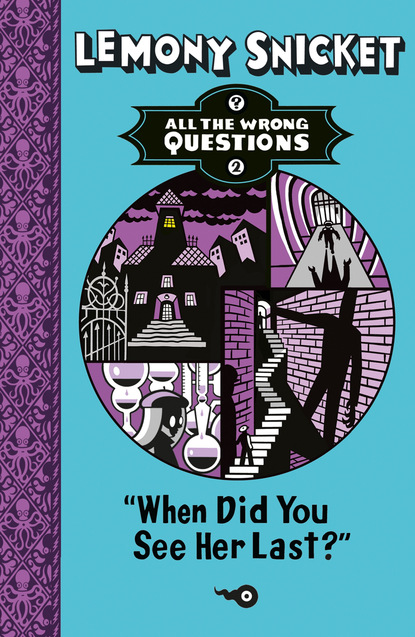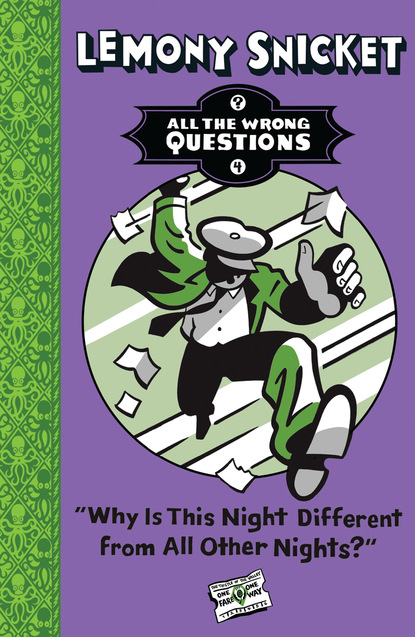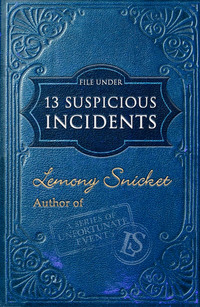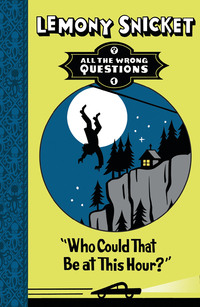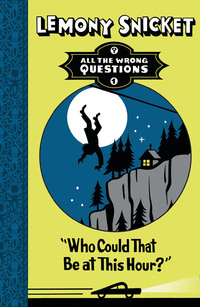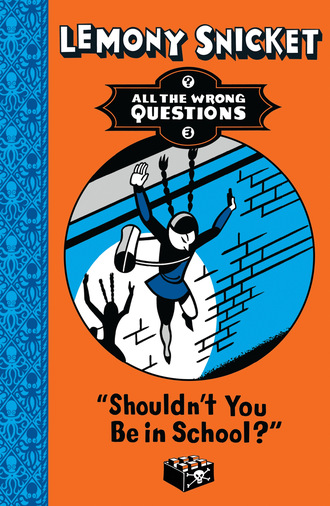
Полная версия
Shouldn't You Be in School?
“What do you know about Harold Limetta?” I asked the Mitchums.
“Not a lot,” Harvey Mitchum admitted. “He’s new in town.”
“He moved into this house only days ago,” Mimi said. “All anybody knows about him is that he is a leper.”
“He’s sick?” I said.
“No,” Harvey said. “He studies moths.”
“Then he’s a lepidopterist,” I said. “A leper is someone with a terrible skin disease.”
“Nobody likes a know-it-all,” Mimi said.
“He called us and said his house was on fire,” Harvey Mitchum said, “but when we arrived there was no sign of him, although it looks like his moths were burned to a crisp.”
Mimi pointed to some tiny black specks near the shattered glass of the tanks. They might have been moths, once. And it might have been Harold Limetta on the phone. “We were going to ask for him at Birnbaum’s Sheep Barn,” she said. “The barn supplied wool for Mr Limetta’s moths to eat.”
“Birnbaum’s Sheep Barn has also burned down,” Theodora said, sitting on the bench before immediately getting up again and brushing the ashes off the back of her pants. It took her a long time.
“What do you know about these fires?” Harvey Mitchum demanded. “It’s still too early to make assumptions, but I’d say both of you have something to do with all this. Lately, whenever there’s a crime in Stain’d-by-the-Sea, we seem to find you and your whippersnapper poking around.”
“We’re here as professionals,” Theodora said stiffly, finishing up with her pants.
“We’ll do anything we can to help you solve this case,” said the whippersnapper.
“You can help by butting out,” Mimi Mitchum said. “And the same goes for you about butting, Harvey.”
Harvey gave his wife an exasperated frown. “Mimi, I’ll remind you that I’m an officer of the law, just like you are.”
“You’re not just like I am,” Mimi said. “I’m a brave and capable law enforcement official, and you’re a nincompoop!”
“If I’m such a nincompoop, why are you the one who forgot to put the milk back in the refrigerator, so it stayed on the counter all night?”
“Well, you’re the one who left the window open, so mosquitoes swarmed our bedroom!”
“Well, you’re the one who didn’t hang up your towel after your bath, so it stayed wet and clammy!”
Imagining the Mitchums getting out of the shower in clammy towels with the windows open and the air smelling of warm milk was a new item on my list of things I would rather not do. “Excuse me, Officers,” I said, “my associate and I are leaving now. Please send my regards to Stewart.”
Stewart Mitchum was the officers’ son, and I did not really want to send him my regards. I could not think of anything I wanted to send him that would be accepted for delivery. “Stew’s at school,” Harvey Mitchum said. “He insisted that he stop working for us by making a siren noise out of the back of our car, and focus on getting a top-drawer education.”
“How nice for him,” I lied. A top-drawer education is a very high-quality one, but the highest-quality anything in the world wouldn’t fix Stew.
“I’d suggest you do the same, Snicket,” Mimi said, and gave me a stern look. “We’ll be keeping an eye on you.”
“And the milk,” Harvey added, glaring at his wife. As a good-bye, I gave them a nod I had practiced for quite some time in the mirror. It was polite enough that no one could complain but not so polite that the person receiving the nod would think you liked them. I trudged through the ashes, trying to think. I had been taught to spend longer than a few minutes at the scene of an investigation, but I was not quite sure what it was that I was investigating. Start from the beginning, I told myself. The Department of Education was concerned about a suspicious fire, and pointed us toward a witness to the fire. Upon arriving at his home, we found it too was burned to the ground. There were moths, there were sheep. The Department of Education had a child working there and was convinced that schoolchildren were in danger. The whole thing was gibberish. Only a babbling buffoon would think it made any sense.
“This is starting to make sense,” Theodora said, when we reached the roadster. “There’s an arsonist who is putting the schoolchildren of Stain’d-by-the-Sea in danger. We’ve got to find him and stop him, unless it’s a woman, in which case it is she who must be found and stopped.”
“Two buildings have been burned,” I agreed, “but why are schoolchildren in danger?”
“The Department of Education said they were in danger,” Theodora said. “Do you think my friend Sharon is lying?”
“She wouldn’t have to be lying to be wrong,” I said.
“Don’t simper nonsense at me, Snicket. I am not a baby. Our progress is being evaluated, and the case has been assigned extra-crucial status. We’ve got to speed up the investigation. I’m counting on your hard work and cooperation.”
I took a last look at the ashes as Theodora started up the roadster. Hangfire, I thought. Is this your handiwork? No one answered.
“Snicket, don’t be a Trappist monk. Answer my question.
“You didn’t ask anything.”
“Well, I meant to ask something.”
“What is it?”
“It’s what are your suggestions? ”
“Let’s go to Hungry’s.”
“Be sensible. You just want to have lunch with your friends.”
“I work better on a full stomach.”
“Well, two can play at that game, Snicket. I’m going to go see Sharon Haines, and we’ll see who comes closer to solving the case.”
The roadster took us back through town. It was hot, and the sun kept glaring at me. It reminded me of Stewart Mitchum, who also liked to glare but was nowhere near as bright. Why would Stew tell his parents he wanted to focus on his education, I asked myself. And then I asked Theodora to drop me at the corner. If too many people see you getting rides everyplace, they get the impression you belong in a car seat. The corner was hot, too. Peppermint ice cream. Maybe Jake Hix will have some in his freezer for dessert.
From the outside Hungry’s didn’t look like anything special, and inside it didn’t either. Certainly there wasn’t anything special about the owner, Hungry Hix, a bitter woman with little patience for young people. What was special about the place was Jake Hix. He was a young man, but old enough to have a sweetheart and a job. The sweetheart was Cleo Knight, the brilliant chemist, and the job was cooking up the food at Hungry’s. It is possible that his genius was more impressive than Cleo’s, and in my case he gave away the food for free, as my funds were limited, a phrase which here means that Theodora didn’t give me an allowance. When I walked into the room, he was standing at a blender that was whirring and crackling away at something the color of bricks. Watching him was Moxie Mallahan, sitting at the counter with her typewriter case hoisted up beside her. I almost didn’t see who was sitting next to her until I was already inside. Nobody noticed me for a second—Moxie because she was watching Jake, Jake because he had his nose in a book, and Kellar Haines because he was pretending not to notice me as I sat at the counter with everybody else.
Jake looked up and turned the blender off. “How are you, Snicket?”
“Hot and starving,” I said, nodding to Moxie.
“I have just the thing,” he said, “but I’m going to make you taste it before I tell you what it is.”
“Finally,” I said, “a mystery I might solve. How’s the book?”
Jake marked his place and tossed it to me. “Has anybody made you read this?”
“No,” I said, looking it over. “I can never remember if that word in the title has one A or two.”
“I have the same trouble,” Moxie said sympathetically.
Jake cut big slices of homemade bread and tossed them into the oven to toast. Jake’s bread was delicious. It took days to make and started with a small bowl of milk rotting on the windowsill. He should tell the Mitchums the recipe, I thought. They have some warm milk at their house. But Jake was telling me the book’s story. “Two guys are friends, supposedly, and then one of them tricks the other one and he falls out of a tree and breaks his leg. The moral of the story seems to be, some boys are mean at school. I don’t need a book to tell me that.”
“If you want a good school story,” I said, “try The Children’s Hour.”
“I’m not sure I want a good school story,” Jake said. He took the blender and poured the brick-colored liquid into three bowls. “I like a story that could never happen to me. If I want real life I’ll read a newspaper.”
“But the newspaper folded,” Moxie said sadly.
At last Kellar Haines spoke up from his stool next to Moxie’s. “But you don’t go to school, do you, Jake? It sounds to me like a school story is something that could never happen to you.”
Jake whisked the bread out of the oven and opened a jar of something orange. It looked like jam maybe. He spread it on the bread. “I can’t go to school,” Jake said. “My aunt counts on me to run this place.”
Kellar looked around the diner and nodded. “What about you, typist?”
“I’m a journalist, not a typist,” Moxie said firmly, handing him one of her cards. “My father counts on me, too.”
“Doesn’t anyone in this town go to school?”
“Lots of kids go to school in this town,” Jake said.
“I hope so,” Kellar said, running a hand through the spike in his hair. “Where would we be without a top-drawer education? Where would all the children be?” He turned to me and met my eyes. My eyes met him back, but I still felt there was something I wasn’t seeing clearly. “And you, Snicket?” he said. “You’re in a special program, if I’m not mistaken. That’s why you were hired to investigate.”
“You’re not mistaken,” I said.
“How’s your investigation going?”
“I’m stopping for lunch.”
“I don’t blame you,” he said. “The food’s delicious. You know what it needs, though? Lime. Lime from an Italian tree. My mother speaks Italian and loves limes, so maybe that’s what gave me the idea. Of course, there aren’t any Italian lime trees, not in this town. None at all. Still, some people waste their afternoons chasing after an Italian lime. There’s a word for that. Can you think of the word, Snicket?”
I knew how I looked when I looked at Kellar. I’ve seen how people look at me when they have no idea what I’m talking about. “Many words come to mind,” I told him finally. “Confused. Perplexed. Puzzled.”
“Those aren’t Italian words,” he said, and wiped his mouth and looked around at all of us. Then he slid off the stool and left the place. We all looked after him.
“Odd kid,” Moxie said, opening her typewriter. “Do you know him, Snicket?”
“His name is Kellar Haines,” I said. “All I know about him is that he’s a fast typist.”
Moxie raised her eyebrows so high they almost disappeared into her hat. “Faster than I am?”
“I wonder what he was doing here,” I said, instead of disappointing her.
“He came in about an hour ago,” Jake said. “I made him a Reuben with extra Russian dressing, and he talked my ear off asking about you. He’d looked for you at the library and at the Lost Arms, so he could deliver a message.”
“But he didn’t deliver a message,” I said. “You saw him walk right out the door.”
We all looked at the door. It had a small square window toward the top, made from that kind of glass that you can’t quite see through. You couldn’t see the street or anything that was happening, just a few vague shapes. My whole day had been like that.
“Look,” Moxie said. “He left my business card behind.”
“I guess he thinks he doesn’t need it,” Jake said.
“Or,” I said, “he doesn’t want it to be found in his possession.”
Moxie gave me a curious look and typed a few lines while Jake put the toasted bread in a pile on a plate and served up lunch.
“Here,” he said, “eat up and tell me what you think.”
It was soup, ice cold, a shock and a delight on such a hot day. The taste was sweet and crunchy and smooth and satisfying. Then I took a bite of the bread and something in the jam made me feel sparks on my tongue. It was a lunch of adventure. I felt my mouth grinning around the spoon.
“What do you think, Snicket?” Jake asked. “Does that cut the mustard?”
What he meant was, “Is this a successful soup?” and I told him it certainly was. “I don’t taste mustard,” I said, “but I do taste tomato and spring onion.”
“And lime,” Moxie said.
“But not from an Italian tree,” Jake said with a smile.
I tasted again. “Maybe a little black pepper?”
“You’re not getting the secret ingredient.”
“Give us a hint,” Moxie said.
Jake thought for a second. “Two hydrogen atoms and one oxygen atom.”
“That’s water,” I said.
Moxie tasted again and smiled. “Watermelon.”
Jake nodded. “Tomato-watermelon gazpacho. It’s what they serve in Spain when it gets too hot. And the stuff on the bread is a habanero pepper jam I made myself.”
“I wish all mysteries were that easy,” I said.
“And this delicious,” Moxie said.
Jake told us thank you and we kept eating. The food made me feel better. Good food always does. For a few minutes I stopped worrying about Hangfire and schoolchildren and arson and the Department of Education. I wasn’t even worrying about Ellington Feint. I was just enjoying lunch, and my only worry was who was going to get the last piece of toast.
I should have kept worrying, though, because when I stopped worrying about the case, somebody else solved it. They solved it incorrectly and dimwittedly and disastrously, which is to say they didn’t solve it at all. But solving a mystery is like naming a dog. If enough people call it one thing, that’s the name that tends to stick. I was savoring my last sip of soup when Hungry’s door swung open and the wrong solution to the mystery hurried in. It was S. Theodora Markson and she had a huge grin on her face, which was never good news. Sharon Haines was right behind her with a grin just as wide, and when Theodora waved to me, I saw that both women had matching freshly painted nails. The nails were wrong too. They were bright, bright yellow, brighter than anybody likes.
“There you are!” Theodora sang out to me, in a voice as bright as the fingernails. I’d never heard her use that voice, and I didn’t like it.
“Tell him the good news,” Sharon said, in a matching voice.
“We have good news, Snicket,” Theodora said. “We’ve solved the case.”
Конец ознакомительного фрагмента.
Текст предоставлен ООО «ЛитРес».
Прочитайте эту книгу целиком, купив полную легальную версию на ЛитРес.
Безопасно оплатить книгу можно банковской картой Visa, MasterCard, Maestro, со счета мобильного телефона, с платежного терминала, в салоне МТС или Связной, через PayPal, WebMoney, Яндекс.Деньги, QIWI Кошелек, бонусными картами или другим удобным Вам способом.


